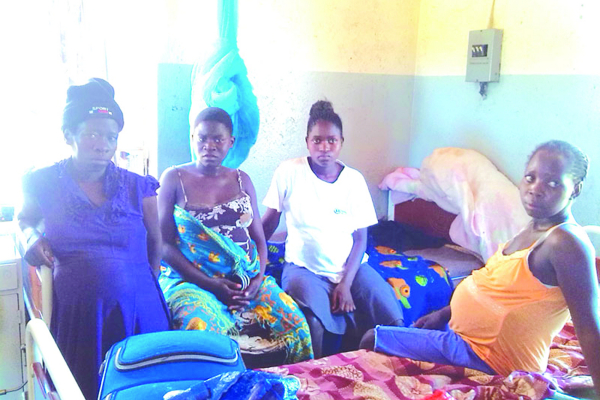
BY SILAS NKALA
MOST women human rights defenders (WHRDs) and political activists lack adequate knowledge on sexual and reproductive health rights (SRHR) and are often vulnerable at their work spaces, a baseline survey conducted by the Women Academy for Leadership and Political Excellence (Walpe) in the Midlands, Bulawayo, Matabeleland South, Masvingo, Manicaland and Harare provinces has shown.
The survey sought to establish the prevailing situation on SRHR in Zimbabwe for human rights defenders and political activists.
Walpe reached out to 500 women in the six provinces.
“Participants were purposely selected for their work in human rights, leadership and activism. Key findings show that there is unmet need and shortage of services and supplies which address SRHR needs due to the ongoing economic crisis,” the Walpe report reads.
Walpe states that it took the initiative after realising that WHRDs and political activists lack adequate awareness on their SRHR and are often vulnerable within their work space and where they operate.
“This lack of awareness and vulnerability places WHRDs and political activists at risk and also adversely affects their work and rights. More critically, the SRHR gaps directly affect the ability of women to freely and fully participate in leadership and democratic processes,” the report further reads.
“There are also challenges of a constrained policy and cultural environment which impact negatively on women satisfying their SRHR needs.”
- Chamisa under fire over US$120K donation
- Mavhunga puts DeMbare into Chibuku quarterfinals
- Pension funds bet on Cabora Bassa oilfields
- Councils defy govt fire tender directive
Keep Reading
The survey was also used to evaluate whether or not the country was on course in attaining the United Nations Sustainable Development Goal number 3 (SDG 3), which speaks of ensuring healthy lives and promoting the wellbeing for all at all ages.
Walpe also stated that 38% of young Zimbabwean women are having sexual intercourse by the age of 18 and the age keeps dropping.
“Specifically, the survey looked at subsection 3.7, which aims at ensuring universal access to sexual and reproductive health-care services, including for family planning, information and education and the integration of reproductive health into national strategies and programmes by 2030,” Walpe said.
“This is more important because according to the Guttmacher Institute1, 38% of young Zimbabwean women have had sex by age 18 and this age keeps dropping, while a quarter of young women between 15-19 years have started childbearing with a third of these births being unplanned.”
Walpe said while contraceptive use increased between 2009 and 2013, the current rising costs and unavailability of the product in some health centres has direct impact on Zimbabwean women’s SRHR.
Walpe stated that the majority of the participants felt it was important that the political party, church or community organisation they are part of should have SRHR policies.
“This shows that women believe that the presence of policies can go a long way in addressing their SRHR needs within the organisations they are part of. Two participants (a lawyer and an SRHR expert) gave interesting insights with one stating that SRHR policies are very important, especially in political parties and churches because women’s rights are being infringed upon without any recourse,” the report read.
“Such policies will make it possible to hold those responsible to account. The majority of the participants (60%) felt that the support towards SRHR in their political party/community/organisation/church is inadequate while 27% felt it was somewhat adequate and 13% felt that there was adequate information on SRHR.”
The survey states that all the participants felt that pregnant women should be allowed to hold public elected office as it has no impact on their ability to deliver on their mandate.
Walpe reported that the majority of the participants (88%) said there was no support for pregnant women to take up elected leadership positions as communities felt they should be confined to the home.
The survey also established that the majority of participants (64%) said they had been abused, but would not likely openly talk about this subject, while 30% indicated that they had been abused and were willing to talk about it.
“This also reflects that the issue of reporting sexual harassment is still a sensitive area which is not openly talked about even by the victims,” the report read.
In its recommendation, Walpe indicated that there was need for interventions, which would put Zimbabwe on the path to attaining SDG 3.
“Key recommendations are for policy interventions at different levels, attitudinal changes and educational and information programmes targeting communities. Awareness raising and trainings on SRHR must be offered within institutions and political parties.”











